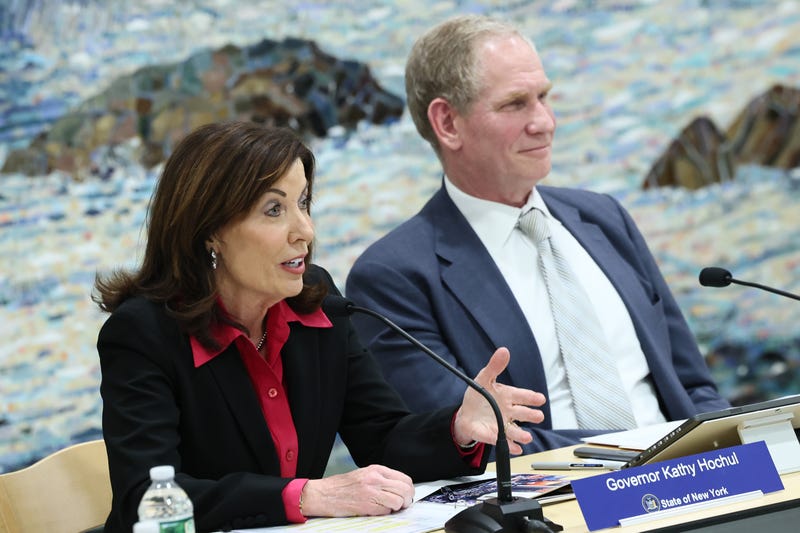
NEW YORK (1010 WINS) – New York’s congestion pricing tolls are moving forward, and Gov. Kathy Hochul is standing firm in support of the program, despite ongoing lawsuits and opposition from federal officials.
“Traffic down, business up,” Hochul declared during an MTA board meeting at Grand Central Station on Wednesday. “We will keep standing up for New Yorkers.”
Hochul discussed her recent trip to the White House, where she and President Donald Trump met for over an hour in the Oval Office last week. She said that she felt that federal officials, including Trump, fail to grasp the daily struggles of New Yorkers.
“There is a huge disconnect between the reality we know that New Yorkers are facing and the perception of reality out of the White House,” Hochul said. “I guarantee that the president has never had to endure missing a child’s sporting event because they were stuck on a delayed train, not sitting in traffic. That is the reality of New Yorkers that we’re solving for.”
The Trump administration last week ordered a stop to congestion pricing, which launched Jan. 5 as part of a bid to thin traffic and fund mass transit by imposing a $9 toll on most vehicles entering Manhattan south of Central Park.
Despite federal opposition, Hochul made it clear that New York will continue fighting for congestion pricing, viewing it as an essential solution for the city’s public transit system and long-term sustainability.
“I know there’s a lot of power in that Oval Office, but I’ll put that power up against the power of 6 million pissed off commuters in New York City right there alone,” Hochul said.
At the MTA meeting, MTA Chairman Janno Lieber pointed to data showing the program’s effectiveness, noting a significant decrease in traffic within the congestion zone.
“2.8 million fewer cars in the congestion relief zone,” Lieber said. “It was bad for our health and it was bad for New Yorkers’ quality of life,” Lieber said. “We’re not going back.”
The new tolls on motorists driving into Manhattan’s busiest areas raised $48.6 million in its first month.
The Associated Press contributed to this.
